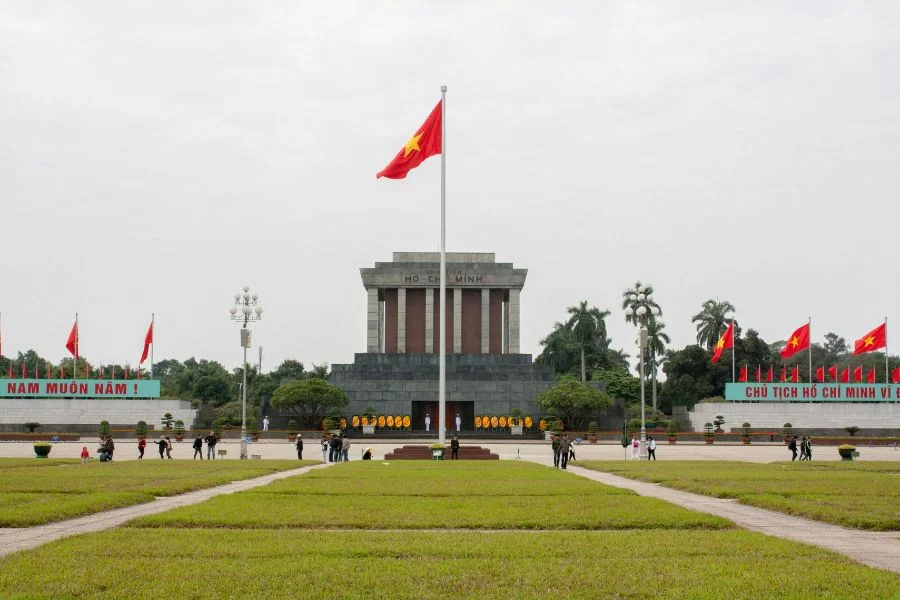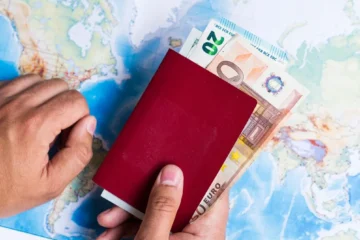Vietnam has become more than just a tourist hotspot for those who fall in love with the country’s mix of tradition and modernity. Whether it’s the fast-paced lifestyle of Ho Chi Minh City, the peaceful countryside of the Mekong Delta, or the culture-rich cities of Hanoi and Hue, many foreigners want to turn short-term stays into a long-term home. In this guide, we will explore how permanent residency in Vietnam works, who qualifies, and how one can navigate the process step by step.
Key Takeaways
How Permanent Residency Works in Vietnam
Unlike countries that advertise PR as an immigration incentive, Vietnam’s system is much narrower. Permanent residency is granted only under special circumstances. Most foreigners live in Vietnam under Temporary Residence Cards (TRCs), which last one to five years. A TRC allows foreigners to work, study, or live in Vietnam but requires renewal.
A Permanent Residence Card (PRC), on the other hand, allows indefinite stay. It is not widely available to every expat but is instead limited to certain categories, such as family reunification, government sponsorship, or individuals who have contributed significantly to the nation.
Also Read: How to Get Permanent Residency in Qatar
Who Is Eligible for Permanent Residency in Vietnam?
Vietnam’s immigration laws (specifically under the Law on Entry, Exit, Transit and Residence of Foreigners) define PR eligibility strictly:
- Family Members of Vietnamese Citizens or PR Holders
- Foreign spouses married to Vietnamese citizens.
- Children of a Vietnamese parent.
- Parents of Vietnamese citizens who rely on their children for support.
- Foreigners Contributing to Vietnam
- Individuals who have made outstanding contributions in areas such as investment, science, technology, or cultural development.
- This route is rare and often requires official recognition by Vietnamese ministries or state agencies.
- Foreigners Sponsored by Government Agencies
- Those working in cooperation with ministries, universities, or state-approved organisations may be sponsored for PR.
It is important to note that most foreign retirees, freelancers, or digital nomads cannot directly apply for PR. For them, the TRC is usually the only realistic option, unless they marry a Vietnamese citizen.

Application Process for Vietnam’s PRC
Applying for a PRC involves several stages and is overseen by the Immigration Department under the Ministry of Public Security. The process usually looks like this:
- Secure a Sponsor
- Family applicants use their Vietnamese spouse, parent, or child as a sponsor.
- Government contribution cases require an official letter of support from a relevant ministry or authority.
- Prepare the Required Documents
- A valid passport and long-term visa history.
- Proof of residence in Vietnam (such as rental contracts or household registration).
- Birth or marriage certificates for family-based applications.
- Financial records showing self-sufficiency.
- Submit the Application
- Applications are submitted to the Immigration Department. Processing can take several months, as background checks and verifications are thorough.
- Approval and Issuance
- Once approved, the applicant receives a Permanent Residence Card. The PRC is valid for 10 years but can be renewed indefinitely.
How Long Do You Need to Live in Vietnam Before PR?
Unlike other countries where PR is based on residency duration, Vietnam’s rules focus more on the eligibility category than the length of stay. For example:
- A foreigner married to a Vietnamese spouse can apply after three years of continuous residence in Vietnam.
- Family members of PR holders usually follow a similar three-year timeline.
- Government-sponsored or “contribution” cases may vary depending on official recognition.
So while residency duration matters, it only strengthens your application if you already fall into one of the recognised categories.
Common Mistakes to Avoid
Foreigners often face hurdles in the PR process, and many applications are rejected due to:
- Confusing TRCs with PRCs: A Temporary Residence Card is easier to get but does not grant an indefinite stay. Many assume holding a TRC long enough will automatically convert into PR — this is not the case.
- Weak or unreliable sponsorship: Without a Vietnamese family member or government body backing the application, PR is nearly impossible.
- Insufficient proof of integration: Marriage-based applications are checked carefully. Authorities may scrutinise for “fake marriages.”
- Missing documents: Certified translations, notarised papers, and local police clearances are mandatory, and incomplete files often delay or derail applications.
Also Read: How to Get Permanent Residency in Greece
Benefits of Holding a PRC in Vietnam
Those who succeed in getting PR enjoy several advantages:
- Long-term security: No need for repeated visa extensions or renewals.
- Re-entry rights: PR holders can freely exit and enter Vietnam without new visas.
- Access to services: Banks, schools, and healthcare systems often treat PR holders like Vietnamese nationals.
- Family stability: Spouses and children also gain residency rights.
Can PR Lead to Vietnamese Citizenship?
Yes, but with strict conditions. To naturalise as a Vietnamese citizen, one usually needs:
- A PR card for several years.
- Proof of good moral character and no criminal record.
- Proficiency in the Vietnamese language.
- Agreement to renounce previous nationality, since Vietnam rarely recognises dual citizenship.
This means PR can be a stepping stone toward full naturalisation, though very few foreigners pursue this due to the renunciation requirement.
Final Thoughts
In this guide, we have explored the pathways to permanent residency in Vietnam. The process is not open to everyone and is mainly restricted to those with Vietnamese family ties or official government sponsorship. While challenging, securing a PRC offers unmatched security, stability, and integration into Vietnamese life. For expats with strong ties, whether through marriage, parenthood, or contributions, the PRC is a realistic and valuable path.





